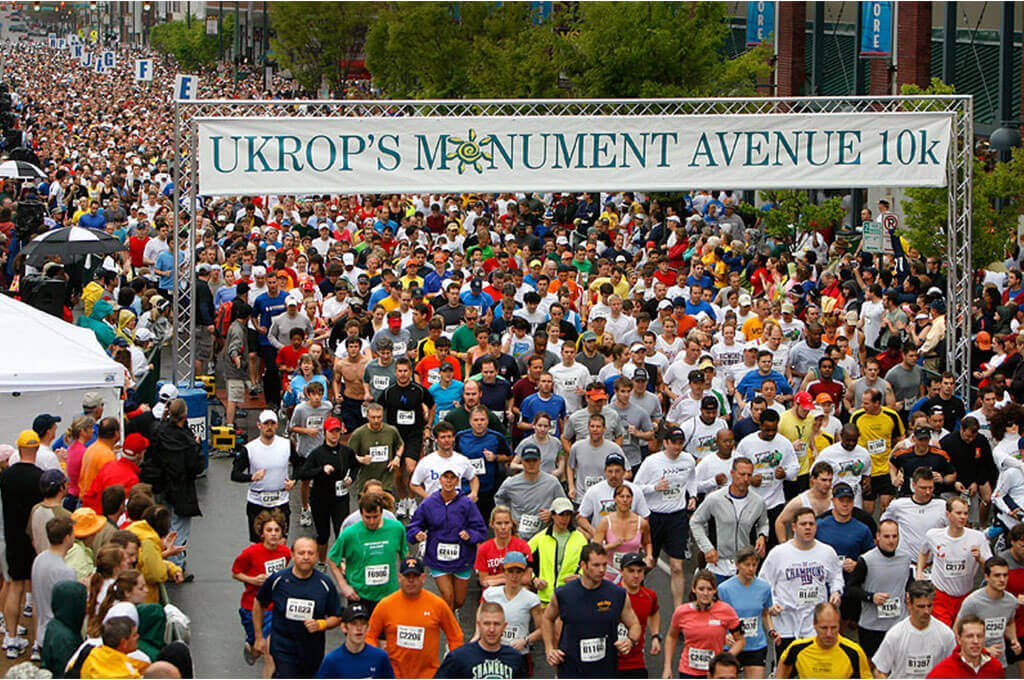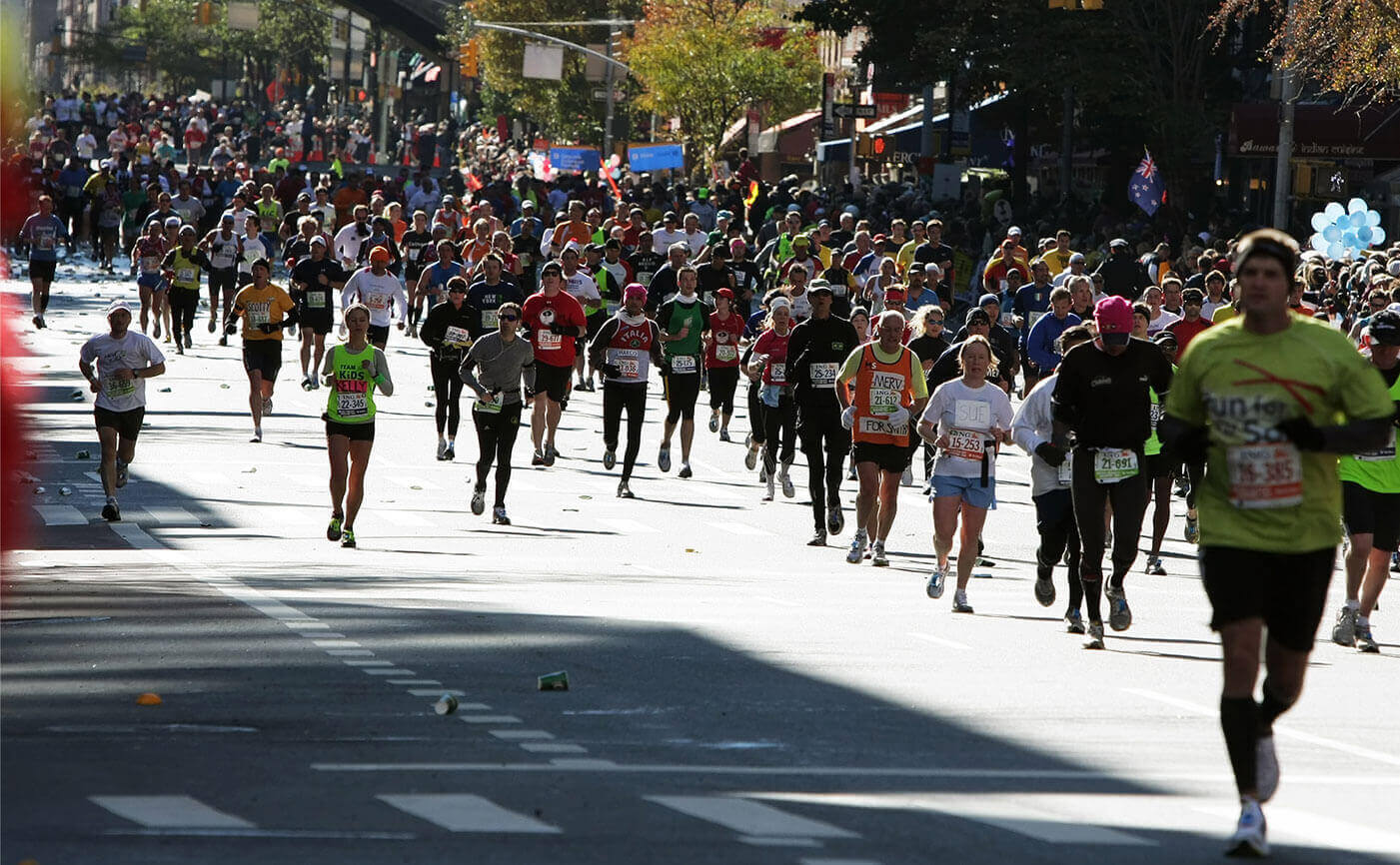Our 10K Training Plans
Custom Training Plans are designed around you and your 10K. We take into account variables that no other training plans can match because we know how important it is to achieve your specific 10K training goals.
We provide the customization of coaching at a price closer to free. Don’t get injured with a generic 10K plan that isn’t made for you, get a custom 10K training plan!
-

expert plans
Developed by certified coaches with time-tested results.
-

Runner Specific
We know you’re unique. Your 10K training plan should match.
-

race Specific
Race profile, time of year, and altitude all factor into our 10K plans.
-

affordable
Custom 10K plans shouldn’t cost more than the race itself.
About 10K
Training Plans
When you register for a 10K, you’re joining millions of people around the globe who are true enthusiasts of this accessible race distance. At 6.2 miles, it is challenging enough for experienced racers, yet still an entirely manageable step up from a 5K. And for those who like to push the limits, taking on (and finishing!) a challenging 10K race as a first-timer is an accomplishment to be especially proud of. In fact, it’s feasible for absolute beginners to complete this distance when they stick to a solid 10K training program, but the trick is to find the right one.

As you search for 10K training plans, it’s important to choose a program that considers your goals, your experience level, your current level of physical fitness, and even the specific racecourse you’re running. At Custom Training Plans, our 12-week 10K training plans and couch-to-10K 14-week 10K training plans are tailored to your unique situation, whether you’re starting with a flat, fast event like Richmond’s Monument Avenue 10K or you’re an experienced runner experimenting with different distances. We believe in providing each runner with a custom-fit 10K training plan that provides benefits that an average plan just can’t match.
An average online 10K training program doesn’t fully address the variety of factors that need to be taken into account, often leading to discouraging results. Overtraining is one of the leading causes of running-related injuries, and if you’re too sore to lace up your shoes, you’re in for a rough workout — and more prone to burnout. Our 14-week 10K training plan is designed to take you from couch to 10K by adding two weeks of conditioning to help you get ready to run.
Considering all the time and effort you put into your race prep, you deserve a 10K training program that’s designed to challenge you and keep you motivated. Our customizable distance- and race-focused plans help you safely develop the stamina and strength you need to reach for your goals. Read on to learn more about the perks of using a personalized race- or goal-specific 14-week 10K training schedules and 12-week 10K training schedules from CTP.
How long does it take to run a 10K?
The time it takes you to run a 10K will depend on a variety of factors, but there’s much to consider before figuring out your target finish for your race. First, you’ve got to select a training plan. The quality of your preparation is one of the most important factors when it comes to successfully completing a 10K race, but the sheer number of training plans out there can be overwhelming. Should you look for a 14-week 10K training plan for absolute beginners? Do you even need a plan if you’re already an established runner? In both cases, the answer is an enthusiastic “Yes!”
If you’re starting from scratch, it’s important to build up your overall fitness with workouts that are calibrated to the right intensity level for you. Consistent, comprehensive training programs give you an edge over those who rush through their preparation. A CTP 12-week 10K training plan for a beginner wakes up the runner inside you with a complete program that’s created to gradually and safely increase not only your mileage, but your overall fitness level as well.
If you’re already a proficient runner, CTP offers 10K training plans for intermediate and advanced athletes. Seasoned racers may be tempted by plans claiming to provide training for a 10K in 8 weeks, 6 weeks, or even less. These short, intense plans can run you ragged, leaving you with very little in the tank when race day rolls around. In fact, professional trainers recommend that the majority of runners should follow a 10K training schedule over 12 weeks — and 14 weeks if you’re coming directly from the couch. This time period allows your body to rest and recover to build the skills and strength you need, whether you’re preparing for the Honolulu Marathon’s easygoing, no-time-limit 10K or the ultra-challenging Bolder Boulder 10K.
Runners who commit to building a solid foundation to support their 10K ambitions are more likely to succeed. Whether you’re running the ever-popular Queens 10K for the first time or you’re fresh off your last 10K, each program from Custom Training Plans can be personalized with workouts that are just right for you. Whether you’re looking to break the 60-minute mark or simply get yourself to the finish line, it’s easy to tweak any CTP 10K training program to aim for your target time.
How to run a faster 10K
Finishing a 10K is a 100% attainable goal for the majority of people — even those with little to no running experience. Unfortunately, there are no magic shortcuts or quick tips for running 10k races. Running a faster, stronger 10K requires you to put in real time and effort. While there are many plans that claim they can prepare you for a race in just 6 weeks, look before you leap. Training for a 10K in 6 weeks might save you time, but it’s a risky shortcut that increases your chance of injury.
Athletic trainers and running coaches agree: the most effective way to increase your speed and strength is to follow a customized 14-week 10K training plan or a 12-week 10K training plan. While the ability to run the full 10K is crucial to your race, there’s a lot that goes on behind the scenes. That means it’s essential to choose a program that includes both running workouts that keep you on your toes and guidance on cross-training, mobility exercises, and more. Together, these elements build the strength, power, and endurance that will carry you throughout your race.
As you get stronger, you might have the urge to take a run or work out every day. Try to resist. While it may seem counterintuitive, rest days allow your muscles to heal, giving you the full benefits of all of the work that you’re doing. Each of the 14-week 10K training plans and 12-week 10K training plans created by CTP include clear guidance on the effect that every day’s workout has on your progress. Both 10K training schedules also include mobility exercises. Stretching and yoga are two great ways to keep your joints healthy and your mind sharp, and the increased range of motion may even help to increase your speed.
Custom Training Plans is dedicated to providing you with a 10K training plan that helps you build your cardiovascular strength, mental and physical stamina, and power that are vital to a high-quality performance on race day, whether you’re attempting to smash your PR at the Illinois Marathon’s 10K or hit the 50-minute mark in a hometown 10K event.
History of the 10K
The 10K’s popularity in the running community has grown steadily, but its origins and historical significance extend beyond just recreational road races. Although the exact origin of the 10K race is somewhat nebulous, it is widely accepted that the distance gained traction as an intermediary between track events and the longer marathon races. Track and field events, particularly in the Olympics, featured distances like the 5,000 meters (roughly 5K) and 10,000 meters (approximately 10K), which have been part of the Olympic program since the early 20th century.
The 10,000-meter race became a staple in the Olympic Games, showcasing legendary performances from athletes such as Finland’s Paavo Nurmi in the 1920s and Ethiopia’s Haile Gebrselassie in the 1990s and 2000s. These historic runs not only underscored the 10K’s importance at a competitive level but also popularized the distance among amateur runners.
By the mid-to-late 20th century, road racing experienced a significant boom, especially in Western countries. The 10K quickly became a popular choice for community races, charity events, and city-wide competitions. Its appeal stemmed from being more challenging than the 5K but less daunting than the half-marathon or marathon, making it accessible for both new and experienced runners.
As participation in 10K races swelled, so did the need for specialized training. Coaches and experienced runners began to devise 10K-specific training plans, emphasizing a mix of endurance workouts, speed sessions, and recovery periods. This led to a plethora of resources, both printed and online, dedicated to helping runners optimize their performance over this unique distance.
In essence, while the 10K might not have the ancient lore of the marathon, it holds a prominent place in modern running culture. Its historical significance in major athletic events, combined with its accessibility for the general public, ensures that it remains a beloved distance for many. And as more people lace up their shoes to tackle the 10K challenge, the demand for effective training plans continues to grow.
CTP’s 10K training plans produce results for runners of all levels
When choosing a training plan for your next 10K, ask yourself if the program fits your style. The 10K training plans offered by Custom Training Plans aren’t overly rigid. This is a key benefit all runners can enjoy, but it’s especially friendly to beginners. While other training programs use tactics that make you feel guilty for getting off track, our personalized 10K training plans aim to encourage, not discourage. Miss a workout? Need to flip-flop a training day? No problem! We understand that life happens, so our plans allow for flexibility.
While 5K races are an all-out effort, the 10K allows more experienced runners to learn how to deploy racing tactics. These skills can be especially beneficial when your goal is to make the podium, top your age group, or shred your personal best. For runners who wish to keep increasing their race distance, thorough, thoughtful training is an effective way to build stamina for half marathons, marathons, and beyond. The 10K is also an ideal race for long-distance racers who want to cut their distance and up the pace. Whatever your goals may be, it’s a great decision to invest in your race prep — and yourself.
Let Custom Training Plans prepare you to run your best 10K yet
Whether you’re running a virtual race in your hometown or coming together with tens of thousands of athletes at a famous 10K event like the Peachtree Road Race, Custom Training Plans can help. Our 14-week 10K training schedules and 12-week 10K training schedules accommodate runners of every level, providing a well-rounded approach to your 10K preparation. Custom Training Plans believes in giving every athlete a flexible, personalized way to train for any race.
A 10K running race is one of the best-loved distances of runners from amateur joggers to aspiring Olympians. Prepping for a 10K is an effective way to build stamina and strength, whether you’re preparing for a specific race like the Cowtown 10K or taking a more general approach to 10K prep. Every 12-week 10K training program from Custom Training Plans is designed to help runners just like you reach for — and even exceed — their race-day goals. Check out CTP’s range of 14-week 10K training plans and 12-week 10K training plans and get ready to run!
Here’s what you’ll receive in your plan package:
-

DETAILED DAILY PLAN
-

Pace chart
-

Lift workouts
-

Letter from your coach
-

Mobility workouts
-

RPE chart
-

Podcast
-

Weekly motivation email

How it works
- Complete our proprietary runner questionnaire so we can get to know you better.
- Your custom 10K Training Plan is built based advanced analytics with personalized coaching oversight.
- Receive your custom 10K Training Plan, lifting + mobility guide, a letter from our coaches, and more within 24 hours.
- Finish the 10K Training Plan with confidence.
Our method
-

With the expertise of USATF certified coaches and physical therapists, we built an advanced model to weigh the effects of runner-specific variables on training outcomes.
-

We analyzed unique characteristics of hundreds of races across the country to build a “race profile” into our model that accounts for elevation gain, altitude, time of year, and more.
-

Our model generates a unique training plan for you and your race, and all plans are reviewed by a coach and hand-tweaked before they make their way to you.


